feminism
No More Khakis
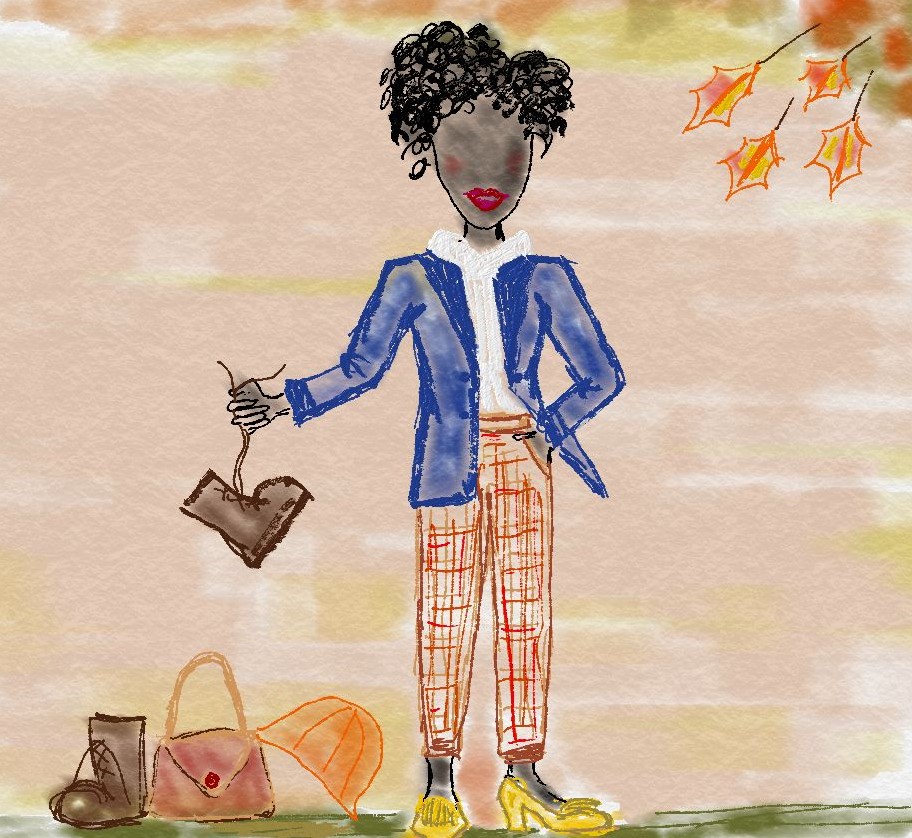
What’s on Your List?
Last month I was on a jobsite, talking to a guy about the sad fact that most TV shows and movies had stopped production because of the pandemic. We reminisced about some of the big movies that were released last year, and then he said it. “I was so disappointed in the last Star Wars movie.” Ugh.
If you’ve been in this space for more than 13 seconds, you know that I loved that movie. So, I knew I was being masochistic, but I couldn’t stop myself from asking, “Why didn’t you like it?” I should have spared myself the agony.
He proceeded to tell me that he resented the fact that “they threw in some people just for diversity’s sake,” and that the main character, Rey, was “just too….well, she should’ve been more like Natalie Portman when she was in the Star Wars movies. Pretty, not trying to act like a guy.” He went on to say it should have been more like the movies from the 70s and 80s. Give me bonus points – I didn’t punch him, and I gave him a polite smile. If you know me, you would have recognized the smile as the kind I give Kentucky fans when I’m thinking of running them over while they’re walking in front of my car.
Here’s the really sad fact about this conversation: I had heard the same opinion from two other guys. One was someone I knew, and one was a movie critic.
Can we discuss the absurdity of complaining about diversity when the original movies that were supposedly the ideal specimens for these guys were peopled heavily with, well…not people. Giant hairy Wookies, cute cuddly Ewoks, not to mention entire bars full of things I can’t even name. Admiral Ackbar had flippers and whiskers, for heaven’s sake. But throw in a few people of color and whoa! We’ve just gone crazy and gotten unrealistic.
Criticism of Rey stems from the fact that she battles her inner demons and saves the world like the man typically does in most movies. I don’t mean just Star Wars movies. I mean all movies. Even though Princess Leia had power in the original movies, she had a pure moral center, and her brother got all of the angsty hero screen time. She was a good girl and she wore a dress.
The truly revealing aspect of the criticism I heard was that the three guys who made the negative statements all had similar characteristics. All three are mid to late 30s, white, and of middle class backgrounds. I believe these similarities explain a lot about their viewpoints.
Most people equate safety and security with how conditions were when they were young. People routinely believe that the world is a scarier place now than “before,” but the truth is that it’s scary now because they’re now old enough to be aware of all of the dangers in the world. And they’re now in charge of at least part of how safe the world is – their families, their belongings, whatever. Most people subconsciously see change as unstable. Ironically, the only thing that is constant in the world is change, so people fix a certain point in time as their benchmark and see everything from that point forward as different and possibly dangerous or unstable. Star Wars of their youth reflected how the world was at the time.
Add to this perspective the fact that men, particularly men who have grown up white in the United States, have had the benefit of knowing that their wants, needs, and cultural accoutrements constitute the mainstream. They see the concerns and interests of women as secondary. As a boss of mine once said, “Can you imagine if women were in charge? All the newspapers would print would be stories about dresses and babies.” We all know that cultural characteristics of minorities in this country also are treated as ethnic items with narrow audiences. As such, Bob from Columbus would see a shiny red Corvette as something that everyone should want, but he would view a tricked out El Dorado with rims and ground effects lighting as something tacky that “those people” would have to cruise around the projects.
So the guys with the Star Wars criticism were viewing the elements of the movie as not just change in Star Wars land, but changes in their own world. And those changes might be scary. What if the interests and needs of men, mainly white men, were no longer considered above everyone else? What might happen to the world???
I say this in a rather harsh manner, but I actually have a lot of friends and loved ones who are men, including a lot of white men. (If we’re talking about my family, really really white men. Almost translucent). They are good people and not necessarily racist or sexist or horrible trash. At least not knowingly. I think this worry about change reflects the same worry most people have when faced with a different world than the one where they were comfortable, where they knew their place. These guys just happen to be sitting in the catbird seat, and they see it slipping away.
I am sympathetic to the guys who don’t realize that their preference for “the right way” is actually just a preference for comfort and control. We all want that, right? On the other hand, I started thinking about what the world would be like if the preferences of men did not dictate the ways of society, and the world could be like it is when I’m comfortable and happy. WAIT A MINUTE – THIS COULD BE GOOD. There are some things that I just get completely sick of that are the province of men, and some that are mostly popular because of white men. Could we get rid of them if we all get equality? Okay, not get rid of them, but push them into the region of small cultural niches where many of my likes currently reside? The thought was delightful. I started a list.
I had a lot of fun making my list, and I’ll share it with you. Keep in mind – this is MY list. Don’t contact me and tell me that you actually like #6, and you’re a woman. Or don’t call to tell me that men of color like most of the things on the list. This is my fantasy list in my fantasy world where Manolo Blahniks get more attention than golf clubs. In my world, there would be less fascination with marching around the world killing other people and more interest in dance-offs. You might envision a world in which there weren’t “restaurants” with burgers made of fillers on every block and instead people could get arroz con pollo on every street corner. You might wish that movies weren’t made where obnoxious, out of shape guys get the gorgeous girls and instead the curvy girl with blue-black skin and Bantu knots has her choice of all the hot guys. I suggest you make your own list. Mine made me really happy.
So I’ll share it with you. Here are all of the things I would strike down to niche status just because I don’t like them, and I get sick of them dominating our world. That’s how society should be, right? Whoever is in charge gets all the marbles? Add whatever you like.
- War movies
- Khakis with pleats
- The air guitar skills of anyone over the age of 16
- Polo shirts
- Mullets (No, they’re not gone. I worked with a guy sporting a 1985 classic last week).
- Books about Civil War battles (and Civil war weapons and that weird ironclad Civil War submarine)
- Baseball
- Golf pants
- Four wheelers
- Speed boats
- The Three Stooges
- The University of Kentucky
- Excessive lawn maintenance
- White socks with dark sandals
- Cigars
- Homebuilders who wear khaki Bermuda shorts and never get dirty and just talk on their cell phones all day and knock off early (okay, very specific, but like locusts)
- Grilling out as an art form (It’s a flame and some meat. You’re not a genius).
- Preaching about vehicle maintenance
(Note: This list was made in fun. If you think I hate men or I’m anti-white men, you don’t know me, and you didn’t get it. I’m running for President in 2024 on a platform of increased funding for good quality riding boots and an emphasis on floral education).
He sounds like he’s on the right track – we trust you to keep him there!
My son told me he likes Rey because “she reminds me of you, mom!”, so there is hope for the…
Well done! So snappy and upbeat. I’m proud to know a few awesome geotechs in the video!
Love it! I’m hearing lots of great feedback!
The Others
More is Better

By Guest Contributor Lori Simpson
(Editors’ Note: Lori is our hero. You can read her brilliance here. If you are lucky enough to meet her in person, pay attention).
The “Member Voices” article in the May 2019 ASCE Civil Engineering magazine hit home for me. Hannah Workman, a student at Fairmont State University in West Virginia wrote about sexism in engineering. No, this is not what you are thinking—she was referring to a different kind of sexism: the kind that we women perpetrate on each other. Her angle was about senior female engineers who show favoritism or give a preference to male engineers over female engineers. After giving some examples, she concluded that it is a territorial issue: senior female engineers were probably the only one at their firm and had to fight just to obtain that spot. They would see other women as competition.
I am a senior female engineer. I have been in the industry since 1986 and have often been the only woman in the room (or jobsite). This still happens, so I know many of you can relate. There are many reasons why having limited diversity on a project may not result in a project’s best outcome – not enough diversity of thought or experiences can prevent some great ideas from coming out. But there is another effect that happens, and I am here to testify to my own shortcomings: I take pride in being the only woman in the room. There. I said it. It is a badge of honor that I have enjoyed wearing, and if I am being really honest with you, deep down I still do. Being the only woman in the room means you are tough. The problem is that you can only wear this badge if you are the only woman in the room. The side effect of this situation is that I did feel competitive with other women and did not do what I could to help other women achieve in their careers.
The good news is that I am working on reforming myself, with the help of many of my peers in the industry. Initiatives like DFI’s Women in Deep Foundations (WIDF), the SE3 Project, AIA’s Equity by Design, and my own company’s Women@Langan have opened my eyes and are providing me strategies for mentoring and advocating for women. When WIDF had its inaugural meeting, one of the women in the room asked, “How many of us come to the DFI conference and never say hello to other women?” Guilty. Even at a conference I felt competitive with the handful of other women there (glad to say – there is way more than a handful of women at DFI now). As I am confessing this, it seems so silly – it’s not like I’m competing for attention from the men at the conference. I was competing to be the Toughest Woman. But guess what? It turns out that it is way more fun when there are many of us. Now I revel in walking into a room and seeing LOTS of bad-ass women.
So I realized that I need to help make this happen, especially in my position as a senior female engineer in the industry. At first I thought that because I figured it out, others would too–that just being an example was sufficient. I saw a lot of smart, hard-working women around me and figured they would know what to do. But when you really start to talk, you realize that you need to tell your story. And while we have a lot of shared experiences, we learn from how we each dealt with them. So I tell the stories of being out in the field with no proper facilities, being the only woman on a construction site, not being listened to. I share how I got the flexibility I needed while raising my daughters, how I advocated for fair pay, and how I presented my qualifications to get the promotions that I sought. I talk about how I developed my confidence, my voice. It’s not bragging—it’s making sure we know we aren’t the only ones going through this.
I’ve also realized that I can use my hard-won position to advocate for change. I can give a hand to those women working up the ladder, both in my company and in others, because one of the spoils of being a Tough Woman for so many years is that now I’m part of the decision-making team.
So let’s keep the conversation going. If we don’t help each other out, we are perpetuating the isolation of women in our field. Madeleine Albright said, “There is a special place in hell for women who don’t help other women”. I don’t want to end up in hell.
Are You a Feminist?
What Does That Even Mean?
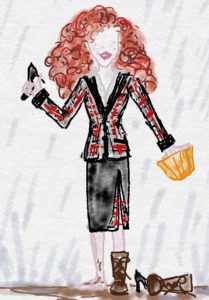
Are you a feminist? What exactly does that mean? And is it important to you to identify yourself as such?
Megyn Kelly, former Fox News host and current NBC news personality, was widely derided in 2016 by her refusal to label herself as a feminist. She stated that the term had become divisive and had negative connotations. Many women took that position as a cop out and an avoidance of the true issue: that being branded a feminist would alienate many of the average Fox viewers. They said that she needed to stand up for women as a whole, even if it meant losing her job at Fox.
So what does the average bear think a feminist is? The simple answer (obviously) would be that a feminist is a person who believes that women are equal to men and should be accorded the same respect and opportunities. But, unfortunately, many years of history have colored individual perceptions. In addition, the actions and words of some in the heat of the battle on inequality have generated a decidedly negative vision of what a feminist represents and who she (or he) is.
Gloria Steinem no doubt was the trailblazer in the modern world of feminism, though not the original pioneer by a long shot. Elizabeth Cady Stanton and Susan B. Anthony were the Lewis and Clark of the equality wilderness, raising issues and bucking the norm long before Ms. magazine challenged the accepted role of women in U.S. society. Julia Ward Howe, Ida B. Wells, Sojourner Truth – these women functioned and rebelled in conditions we can’t even imagine. They made people face truths and answer questions that weren’t comfortable or conventional. Thanks to them, you’re sitting at your desk working on a tieback design or standing on a construction site yelling at people about clean bottoms.
Unfortunately, many of the men (and some of the women) of the times reacted to these women by assuming that since they didn’t want to fill a normal societal role, they didn’t want to be a “normal woman.” Translation: They didn’t like men and they didn’t want to be feminine. Although part of this was ignorance and part of it was an attempt at control through shaming, the ugly side effect was a lingering implication that feminists didn’t like being womanly and they were against men.
Organized feminist actions in the 1970s compounded this stereotype. The bra-burning, tie-wearing, loud, angry women that demonstrated for equal pay and equal opportunities reinforced the notion that feminists are rude, unfeminine, “coarse” ball-busters who don’t like men and have no interest in being nice to them. In fact, they want reparations for 12,000 years of oppression.
It’s often so easy to forget that people who start revolutions have to overcome years, decades, centuries of inertia. Society has been functioning as X, and now someone wants it to be Y. This doesn’t happen easily. It takes anger, it takes aggression, it takes breaking out of stereotypes just to get people’s attention. Changing the average person’s mind is another mountain to climb once you have their attention. It’s no wonder the early feminists seemed angry. They were trying to get people to listen! They were TIRED!!! They were exhausted from trying to overcome centuries of societal inertia. They were worn out from attempting to use logic to overcome fear and emotion. They were frustrated from worrying that they would be unsuccessful.
Despite the reason, the negative stereotype of a feminist still exists with many people. The purpose of all the hard work of Ms. Cady Stanton and Ms. Steinem and the others was to allow us all to be equal, regardless of who we are. They didn’t mean to support just women – they intended to establish equality for everyone. Purple, three-headed Martians would be accorded the same freedoms and rights as WASP males and women of east-central northern Irish descent who were born on the subway. But the residue of the battles remains, and the feminist brand often is not a positive one.
Some modern women, particularly those of a certain age, believe that to resist the feminist label is to abandon the cause. You are a failure if you don’t embrace the title and forge on with the battle. But are you? Do we shirk our duties as progressive women if we don’t deem ourselves warriors?
On a personal level, I have a serious problem with being given any label (except that of a University of Louisville Cardinal). Whether the label is true depends on how you define it. You might define it differently than I do. Beyond the definition, I might decide that I want to change in the future. The issue might change. DO NOT TELL ME WHO I AM.
I also don’t like the idea that being a feminist means tipping the scales against men. Equality means equality, not “We should get lots extra to make up for all that crap in the past.”
Here at Underpinnings, we have noticed an interesting development in this label issue. Younger women in our field are not as comfortable making a fuss about equality or their rights in the workplace, and they often aren’t ready to proclaim themselves feminists. In some cases, it’s because they don’t see their world as that bad. It’s not, because we’ve made progress. In other cases, they see us more seasoned professionals as being too confrontational and ready to raise hell. (See my previous comments on being exhausted from fighting the battle for so long). To them, the idea of being a feminist smacks of unnecessary and insensitive crusading.
In the case of Ms. Kelly, I believe that the whole point of feminism is to get us to the place where women can do what they want with their careers. When she was at Fox, she wanted to be at Fox. Was she wrong to monitor her language so as not to alienate the very audience she wanted to court? Yes, you say – she has an obligation to do what’s right for the advancement of all of us. Does she? Maybe the success of feminism is that she can express her opinion, whatever it is, and she gets to be the person to figure out what strategic moves she needs to make to have the career she wants. Whether that career is worthwhile is her business.
A necessary component of succeeding in war is unity. When the war is over, troops often have a difficult time establishing themselves as individuals, particularly if the issues from the war aren’t completely resolved. There is even fear of functioning outside of your unit, outside of the war. The need for determination and grit are so compelling during the battle that to give it up seems suicidal. Those women who fought the hardest of the wars of the past no doubt fear we will lose all the ground we’ve gained if we give up for even a second. They say that women are traitors who won’t go by the name “feminist,” lest we all end up back in the kitchen, illiterate with no freedom.
Perhaps we need a new word, one that represents our goal of equality for all, which was the original purpose. Allofusist? Everyoneist? Peopleist? We need to refocus on the fact that we celebrate women, not that we denigrate men. And we need to acknowledge that one of the spoils of this war was supposed to be our right to call ourselves whatever we want and carry out our personal and professional lives however we want. Ms. Kelly doesn’t have to call herself a feminist as far as I’m concerned. It won’t affect my ability to be what I want, which of course is a Cardinalist.
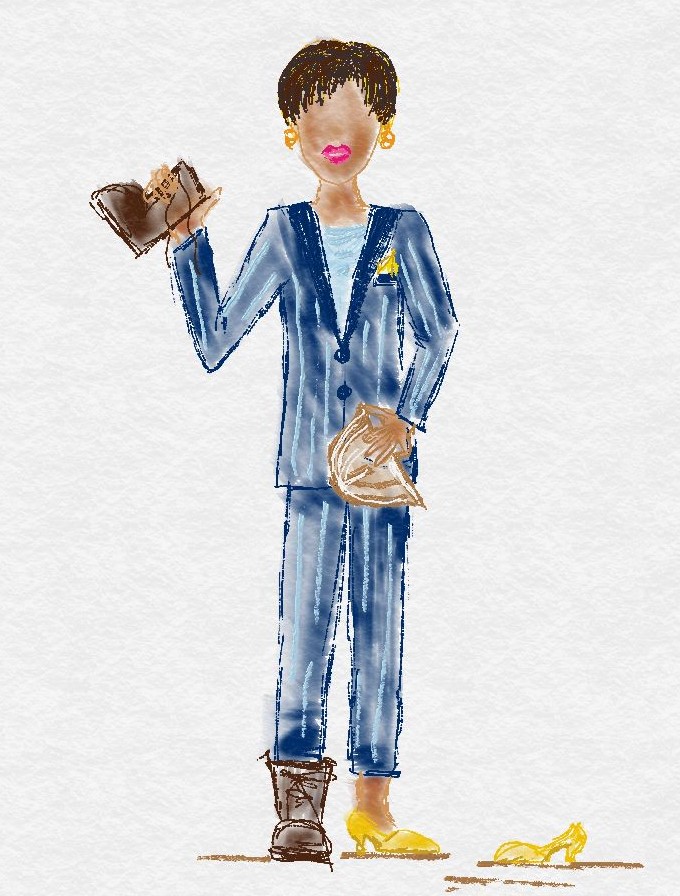
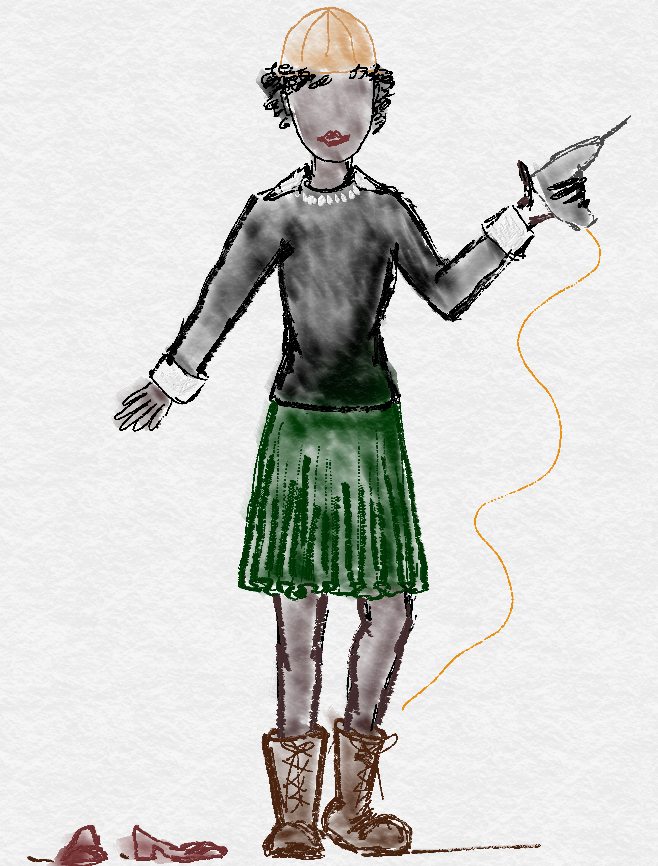
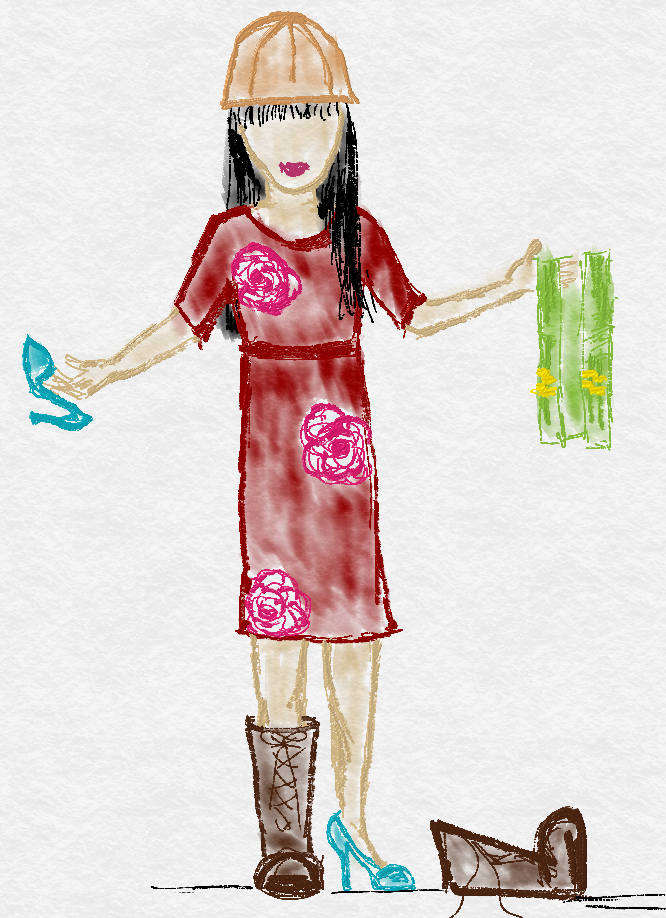
love it! this was so “on point”! coming from minority background, i have seen “white men” being very confused when…